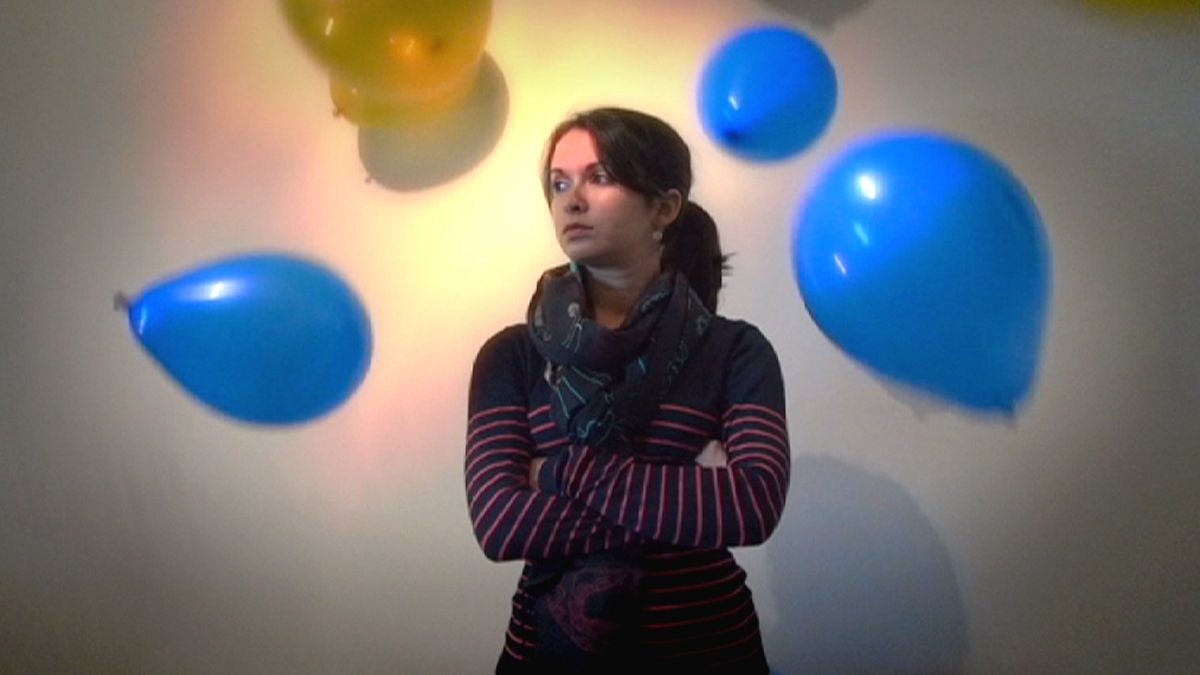It is great for some, but for others the building of a new Europe is no cause for celebration. Amid increasing talk of a disconnect between Europe and its people, political leaders face a real challenge. But there are some countries where interest in the EU is at record levels.
The island of Malta is the envy of larger countries struggling to spark interest in the European Union. A decade ago just 53% of people voted in a referendum to join the EU; today it is near the top in surveys on whether people feel European and think their voice counts.
A recent Eurobarometer survey gives Malta the second highest score in terms of people feeling like EU citizens, with a figure of 81%. Luxembourg is top of the list.
At the other end of the scale is Bulgaria, the UK, Cyprus and Greece, where less than half the population feel European.
Also, in the last EU elections in 2009 Malta had the highest turnout among nations where voting is not compulsory.
Right On met Maltese citizen Vivienne Bajada, a woman working in public relations who is typical of those keen on Europe. Her studies focused on EU affairs and she has been heavily involved in related activities.
“It’s the idea of interacting with students and people abroad who have similar interests to you, and who want to see Europe succeed, the idea of Europe succeed, and the member states within the EU succeed,” she explained. “When you discuss these things with people it takes a similar pattern. People in Malta have the same tastes, and the same problems, and the same ideas of people abroad.”
Vivienne is one of those who recently attended a European citizens’ dialogue meeting. Dozens of similar gatherings have been held in towns and cities across Europe this year, as Brussels attempts to encourage local debate about the future of the bloc.
In Malta, people do not hesitate to share their views.
One man told Euronews: “Obviously there are short-term issues to catch up (on), but the fact that we are officially European, obviously part of a bigger family, all is well. I mean there are the advantages of larger scale economies.”
“Some taxes, we increased on some taxes,” said one woman. “But it’s good because they helped us along with our work, the streets, there’s a lot of work that they did in Malta.”
Another woman said: “We have moved forward quite a bit, seeing that we have to conform to certain rules and regulations that are good for the country.”
But one man told Right On: “I have nothing against the people because we are European. But I believe that Europe is a club for the rich, and I think Malta has done very badly since we went into Europe, we’ve done very bad, the cost of living went up.”
The country’s prime minister is committed to defending Malta’s place in Europe, but even he campaigned against membership ten years ago. Experts say the economic benefits for this nation of 420,000 are undeniable, and there is now political consensus on Europe.
Professor Roderick Pace from the Institute for European Studies at the University of Malta told Euronews: “I think there is a correlation between economic performance, national economic performance, and support for Europe; and the Maltese economy has not been doing badly. So I think it has been doing quite well, and this explains why – I think partly explains why – the support for Europe is so strong.”
And the support is there despite growing concern about illegal immigration, with Malta being one of the countries on the frontline. Other experts say interest in Europe is boosted by the fact that Malta is a highly politicised country, where awareness about key issues is promoted at all levels of society.
Right On’s Seamus Kearney reported: “Campaigners say as well as encouraging debate on European issues, and listening to citizens’ concerns, a lot more information about EU rights and benefits is needed.”
And even in Malta surveys show many people still do not know enough about their European rights.
In the capital, Valletta, we came across business people attending an information meeting organised by the European Commission. Its main representative in Malta says talking to targeted groups is key.
Martin Bugelli, Head of the European Commission Representation in Malta, told Euronews: “It’s useless to try to speak to everybody about everything all the time; that way you end up speaking to no one about anything. So we try to to speak to small groups of people who are interested in particular themes.
“If it’s businessmen, talk to them about access to finance; if it’s people in the travel industry, we speak about the benefits of health insurance; we speak to younger people about the benefits of having roaming charges, always trying to identify interest groups and addressing their particular interests and concerns.”
European officials know they have to find new ways of ensuring that citizens are at the heart of the EU.
And part of the challenge is what to do about surveys that show that only 28% of Europeans feel their voice counts in the European Union.
